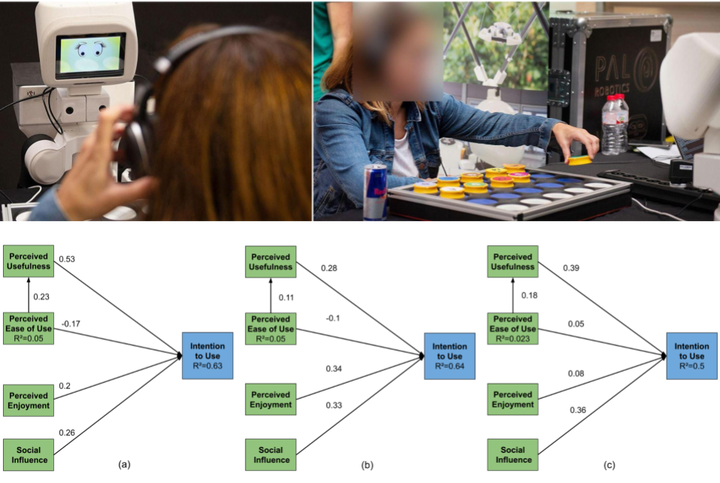I Know How You Feel: The Importance of Interaction Style on Users Acceptance in Entertainment Scenario

Abstract
In this article, we aim to evaluate the role of robots’ personality-driven behavioural patterns on users’ intention to use in an entertainment scenario. Toward such a goal, we designed two personalities: one introverted with an empathic and self-comparative interaction style, and the other extroverted with a provocative and other-comparative interaction style. To evaluate the proposed technology acceptance model, we conducted an experiment (N=209) at a public venue where users were requested to play a game with the support of the TIAGo robot.Our findings show that the robot personality affects the acceptance model and three relevant drivers: perceived enjoyment, perceived usefulness, and social influence. The extroverted robot was perceived as more useful than the introverted, and participants who interacted with it were faster at solving the game. On the other hand, the introverted robot was perceived as more enjoyable but less useful than the extroverted, and participants who interacted with it made fewer mistakes. Taken together, these findings support the importance of designing proper robot personalities in influencing users’ acceptance, featuring that a given style can elicit a different driver of acceptance.